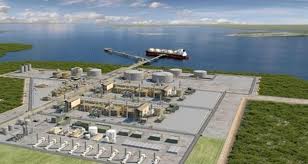TotalEnergies Mozambique LNG project may resume within 18 months
TotalEnergies' LNG project in Mozambique could be back on track within the next 18 months after African armies deployed to help quell an insurgency, the president of the African Development Bank (AfDB) said.

The French energy giant declared force majeure on the $20 billion project in April after Islamic State-linked fighters overran the town of Palma, on the doorstep of its facilities in the northern Cabo Delgado province. It estimated at the time the disruption would delay development by at least a year.
Troops from Rwanda and members states from the Southern African Development Community (SADC) have since deployed to support Mozambican forces to help put down the insurgency.
AfDB president Akinwumi Adesina told Reuters he did not expect the interruption to affect the LNG project's long-term viability.
"The return of security in that place will give assurances to Total and others to return," he said. "In one year to 18 months, I expect it to be stabilised enough to get back on track."
TotalEnergies did not immediately respond to a request for comment on Adesina's remarks.
The AfDB is lending $400 million to the project, which is Africa's largest ever foreign direct investment and a lynchpin of Mozambique's economic development strategy.
"It gave us real concern when Total declared force majeure and they had to move out. But you can understand because of the insecurity situation," Adesina said.
Southern African nations agreed in June to send troops to assist Mozambique, and Rwanda, which is not a SADC member, deployed 1,000 soldiers a month later.
Mozambican President Filipe Nyusi has said the army is now retaking ground in Cabo Delgado. Last month, Mozambican and Rwandan security forces recaptured the port town of Mocimboa da Praia, previously an insurgent stronghold.
But Adesina said insecurity was still restricting investment in other parts of Africa, pointing to conflict zones in Chad, Mali, Burkina Faso, northern Nigeria and Cameroon.
He said the AfDB was developing facilities, including security-indexed investment bonds, to help African countries tackle insecurity and rebuild after unrest.
"Without security, you can't have investment and you can't have development," he said.
(Reporting by Joe Bavier; Editing by Edmund Blair)

- RWE strengthens partnerships with ADNOC and Masdar to enhance energy security in Germany and Europe
- TotalEnergies and Mozambique announce the full restart of the $20-B Mozambique LNG project
- Venture Global wins LNG arbitration case brought by Spain's Repsol
- KBR awarded FEED for Coastal Bend LNG project
- Norway pipeline gas export down 2.3% in 2025, seen steady this year



Comments